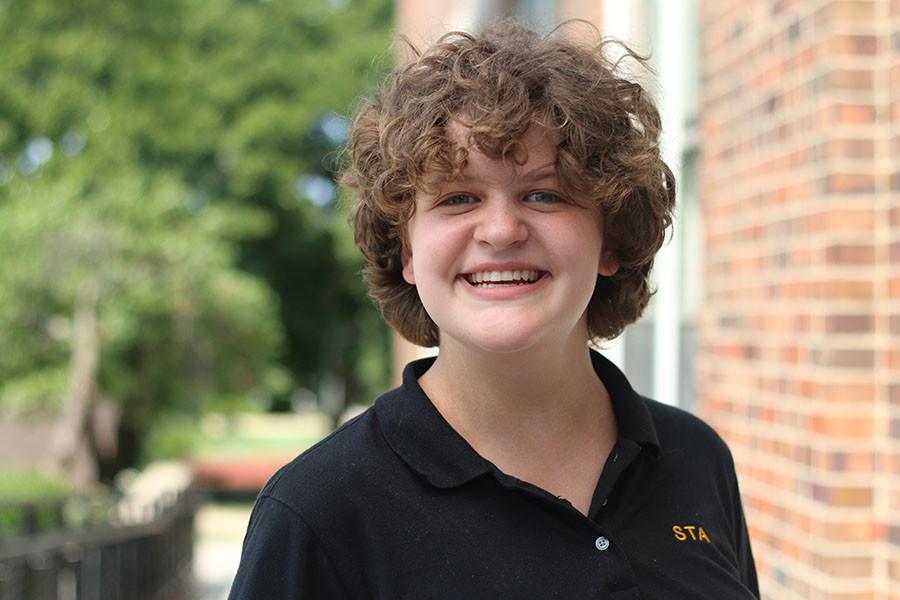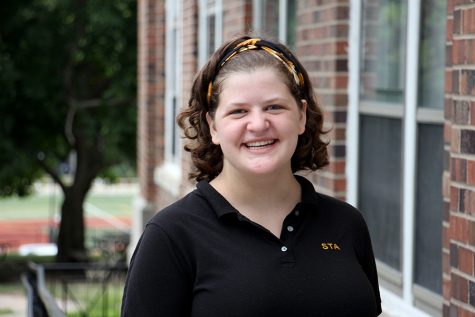Students are forced to value schoolwork over health
When school is considered more important than physical and mental health, the consequences become dire.
November 4, 2015
If I’m hacking up a lung and I’m probably contagious, why am I still at school?
Is it because I’d rather spend my day in a desk than in my bed? Or is it because taking a sick day would count toward the five days of AP English I can miss per semester before my grade drops 5%?
If I wake up having a full-blown anxiety attack, why do I still attend classes?
Is it because I value my education so much that I refuse to skip even a day of learning? Or is it because I have a test, two meetings, a tutoring session and an in-class essay, and skipping all that would just pile on to my anxiety?
If I’m physically or mentally unwell, why don’t I just take a break?
Is it because school is more important to me than my health? Or is it because I’m told that school should be more important to me than my health?
As students, this is sometimes a daily choice for us. And school wins out a vast majority of the time.
We live in a culture which puts an enormous amount of importance on academic success. While this isn’t inherently bad, it can lead to high schools putting too much pressure on grades and attendance to the detriment of the students.
Without 8 to 10 hours of sleep a night, according to the Sleep Foundation, teenagers’ ability to listen, learn, concentrate, remember, control their emotions and even drive safely can be obstructed. As of 2014, “58 percent of 15 to 17-year-olds regularly sleep fewer than seven hours each night,” according to The Atlantic. Our brains are literally impeded from proper functioning without the right amount of sleep, yet somehow we’re convinced that staying up until 2 a.m. to cram in those last few vocab words is better for us, even if we’ll struggle to remember them come class time.
Not only is a lack of sleep incredibly unhealthy, but so is this pervasive, anxiety-producing culture which values academic focus above all else. My weekdays are all but filled with academia. I spend every free either catching up or getting ahead on schoolwork. I spend practically every activity in meetings for various clubs and extracurriculars. I sit down in front of my computer when I get home each day and I don’t get up, save for eating and attending dance classes. I usually get to sleep between midnight and 1 a.m., and I wake up at 6:30 a.m. to start the process all over again. Yes, some people have a better schedule than this – but I know for a fact that mine is not near the worst, even just at STA.
As a student diagnosed with generalized anxiety disorder (GAD), academic pressure coupled with six hours of sleep a night or less merely exacerbates existing anxieties. Whether it’s a newspaper deadline or a debate tournament or somehow having four tests scheduled in three days – or, God forbid, all of the above – there’s always something to be stressed about.
It’s easy to say, “Well, if you just work ahead / calm down / make a ritualistic sacrifice to Hades in exchange for the ability to stay awake twice as long, then you don’t need to be stressed!” I most often hear this from adults whose minds have glossed over the work needed to properly succeed in a high school setting. In actuality, that’s a simple misuse of cause and effect. We don’t “calm down” in order to avoid stress; rather, once we avoid stress, we can “calm down.” And when there’s always something new being thrown at you – AP, college, honors courses! NHS! Standardized tests! A job! Any hope of free time for social events! Maybe a nap somewhere in the mix! – there’s never an opportunity to get calm.
So I ask again.
If you’re hacking up a lung and probably contagious, should you still be at school? Do you show up anyway?
If you wake up having a full-blown anxiety attack, should you still attend classes? Do you attend anyway?
If you’re physically or mentally unwell, shouldn’t you just take a break? Can you afford to?
Why not?




